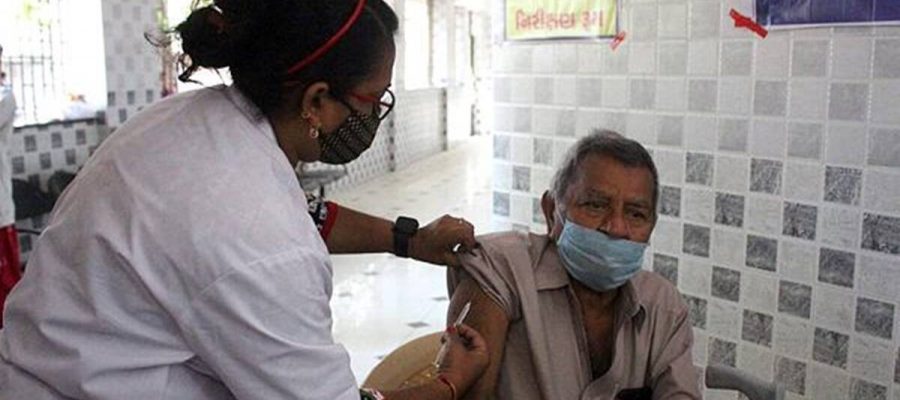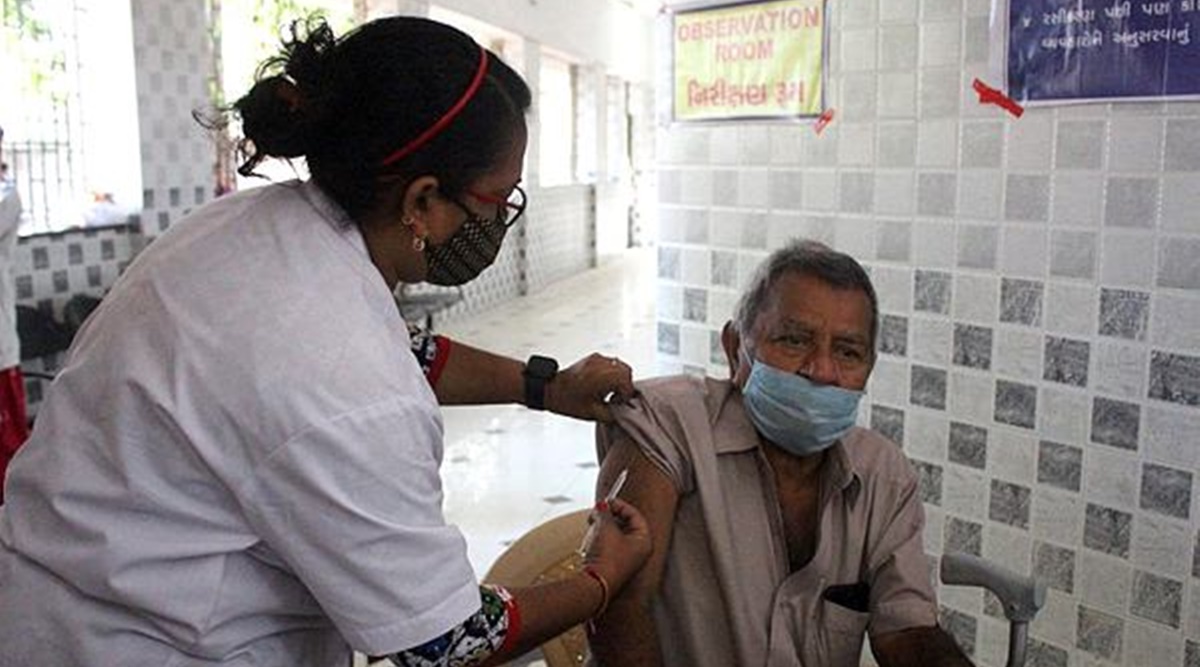“A large number of patients are in home care due to bed shortage in hospitals. Also, family members prefer to get elders treated at home instead of admitting them in hospitals,” AHNA president Dr Bharat Gadhavi said.
THE EXHAUSTION led by a burden due to a steep surge in Covid cases is being felt not only on hospitals — both public and private — but also on home care services.
While many private hospitals and doctors have stopped taking Covid patients for home care, some others have stopped responding to the numbers listed against nearly 50 private hospitals, nursing homes and doctors under Home Care services on the official website of the Ahmed-abad Hospitals and Nursing Homes Association (AHNA).
Among the reasons cited are “acute shortage of oxygen, medicines and health staff”. “We have recently stopped home care services, after the issue of shortage of Remdesivir (injections) cropped up. Also, many of our health workers visiting as part of home care got infected,” said an official at Zydus Hospital.
As per the AHNA, 2,500-3,000 Covid patients are under home isolation in the city now. As on Friday, Ahmedabad city has 35,750 active cases, reported by Ahmedabad Municipal Corporation (AMC).
“A large number of patients are in home care due to bed shortage in hospitals. Also, family members prefer to get elders treated at home instead of admitting them in hospitals,” AHNA president Dr Bharat Gadhavi said.
As for health workers, the exhaustion has started seeping in. “We have stopped taking any new patient under home care as we are too exhausted,” said Dr Ronak Shah from Paldi from among the over 50 home care services listed with AHNA.
“We are overburdened. At present, 100-150 doctors and many nurses are on round-the-clock duty in home care services. It might be the case that due to this, many have stopped such services. There is a need for increasing beds at hospitals as a large chunk of the patients need oxygen,” Dr Gadhavi added.
Of over 550 hospitals and nursing homes as members of AHNA, over 80 have been designated as Covid hospitals. “Giving an updated number of hospitals, at the moment, is not possible. We will soon update the list of hospitals offering home care services culling out that have stopped it,” said Dr Gadhavi.
On the differences health experts are witnessing in home care patients at present against those last year when the home care service was in demand and this demand was also catered to, Dr Anish Chandarana, one of the directors of CIMS Hospital, which had offering home care services for Covid patients till recently, said, “Earlier we would get asymptomatic patients seeking home care services. But now it has reversed. Now we are getting more serious patients with co-morbid conditions, saturated oxygen levels below 94 who are forced to take home care services due to bed shortage in hospitals.”
One such case is a 54-year old Covid patient in the Bopal area of Ahmedabad, who had a harrowing time Wednesday and Thursday. The patient, who tested positive on April 13, after his sample was collected on April 12, had been in home isolation since, with a nursing staff visiting twice a day to intravenously inject a cocktail of drugs which included antibiotics and multivitamins. However on Wednesday late evening his oxygen saturation dropped to 82, leaving his family members in a tizzy. Attempts to call for 108 ambulances were in vain as no one came on call, said the patient’s daughter. Finally, they managed to arrange for an oxygen cylinder.
Dr Chandarana said, “Also, earlier the use of Remdesivir injection was almost nil. Oral and mild medication was prescribed to patients but this time doctors have to give blood thinner injection along with injectible and oral steroids due to severity of cases. It is a life saving treatment, only the venue has shifted from hospitals to homes.”
On the supply of Remdesivir, the Gujarat High Court while hearing a suo motu public interest litigation (PIL) on the surge of Covid-19 in the state, in an order dated April 20, noted the state should reconsider the existing policy on allocation of Remdesivir and suggested the principal health secretary “must convene an emergent meeting of all stakeholders and take an appropriate policy decision which should run throughout the state” instead of a policy that permits district-level discretion.
(WITH INPUTS FROM SOHINI GHOSH)
Source: Read Full Article


